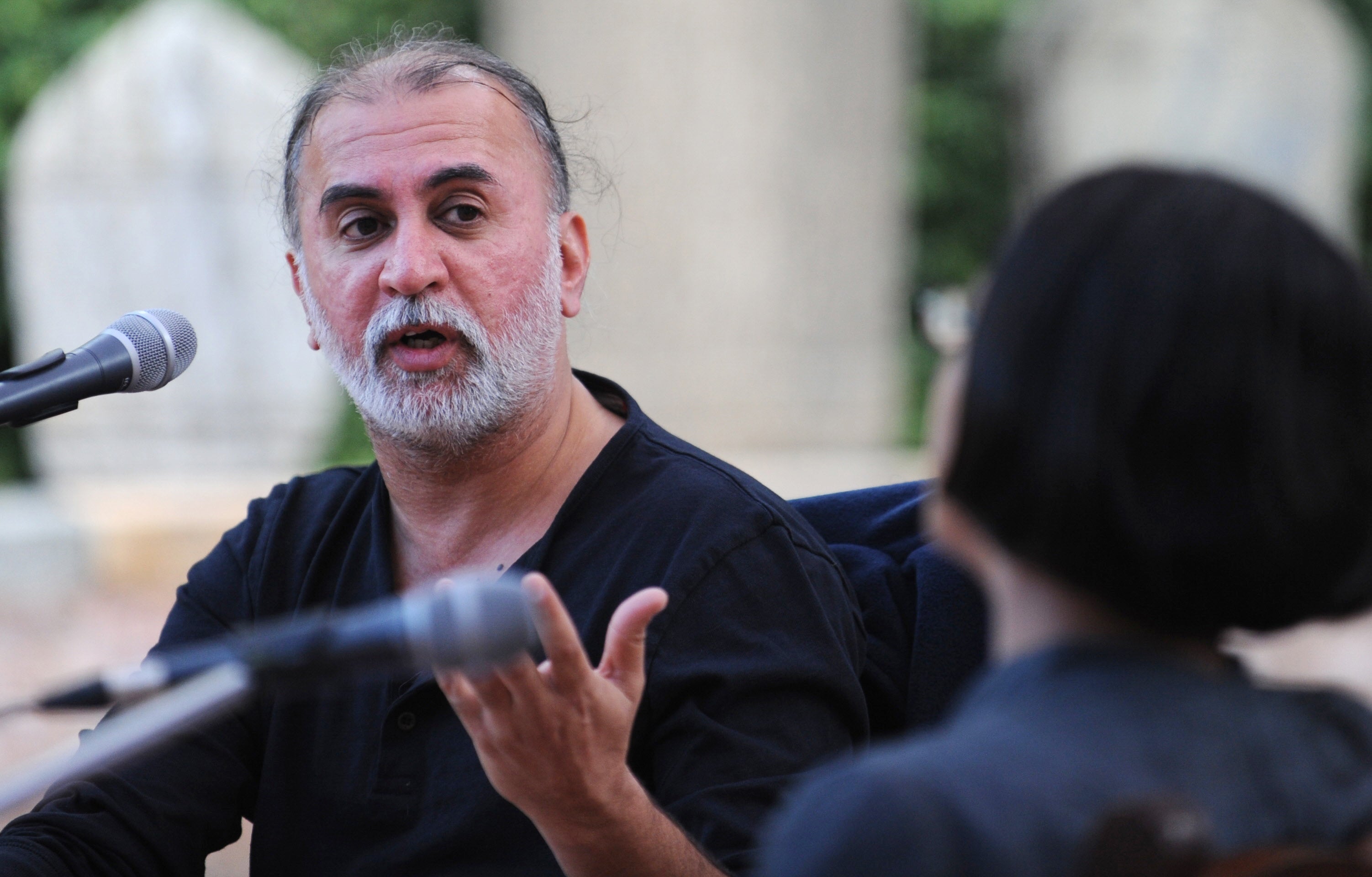Top editor acquitted in major India rape case after judge says alleged victim ‘didn’t act traumatised’
According to the trial court, it was ‘unnatural’ on the part of the woman to message Tejpal

Your support helps us to tell the story
From reproductive rights to climate change to Big Tech, The Independent is on the ground when the story is developing. Whether it's investigating the financials of Elon Musk's pro-Trump PAC or producing our latest documentary, 'The A Word', which shines a light on the American women fighting for reproductive rights, we know how important it is to parse out the facts from the messaging.
At such a critical moment in US history, we need reporters on the ground. Your donation allows us to keep sending journalists to speak to both sides of the story.
The Independent is trusted by Americans across the entire political spectrum. And unlike many other quality news outlets, we choose not to lock Americans out of our reporting and analysis with paywalls. We believe quality journalism should be available to everyone, paid for by those who can afford it.
Your support makes all the difference.A court’s comments accompanying the acquittal of a top Indian editor in a widely-publicised case of sexual assault is being critiqued by women’s rights activist as an attempt at victim blaming as well as setting down terms for how survivors should process trauma.
The case was filed in 2013 against Tarun Tejpal, the editor-in-chief of Tehelka magazine, accusing him of sexually assaulting his then colleague, a woman who remains unnamed, in a posh hotel’s lift in the coastal state of Goa. The verdict was announced on 21 May and the order copy was made available on Tuesday.
According to The Indian Express, additional sessions judge Kshama Joshi, in a 537-page judgment wrote: “It is extremely revealing that the prosecutrix’s (victim) account neither demonstrates any kind of normative behaviour on her own part – that a prosecutrix of sexual assault on consecutive two nights might plausibly show nor does it show any such behaviour on the part of the accused.”
The judge ruled that upon considering evidences on record, benefit of doubt is given to the accused because there is no corroborative evidence supporting the allegations made by the complainant.
She rejected the assertion that the woman was traumatised, mentioning some of the WhatsApp messages where she discussed she had plans to stay in Goa after the official event (organised by the magazine) where the alleged crime was committed. She said there were “facts” that “create doubt on (her) truthfulness,” saying that her messages to the accused “clearly establish” that she was neither “traumatised nor terrified.”
According to the trial court, it was “unnatural” on the part of the woman to message Mr Tejpal about her location in the hotel where she was chaperoning a prominent US actor, the Express reported.
It also ruled that there was no medical evidence that proves the case of the prosecution.
“If the prosecutrix had been recently again been sexually assaulted by the accused and was terrified of him and not in a proper state of mind, why would she report to the accused and disclose to him her location, when she could have reported to (three women)….,” the court said.
“Stop behaving ‘normally’ after you are sexually harassed/assaulted. Else no one will believe you,” tweeted journalist Neha Dixit.
“Still waiting to get the Tejpal judgement, but based on this report in @IndianExpress by @mayura: What a regressive judge & judgement! Where, madam judge, do we women get the instruction manual about how exactly a rape victim should behave?” tweeted political activist Kavita Krishnan.
“The acquittal of TarunTejpal shows why so many women in this country are reluctant to file FIRs in cases of sexual assault. It’s because each case slowly turns into one woman’s unending fight against a chain of hostile legal, social and judicial systems,” wrote journalist Priyanka Dubey.
Mr Tejpal had sent an apology email in 2013 to the then managing editor ofTehelka, Shoma Chaudhury, talking about his “lapse of judgement” for his attempt of “sexual liaison” on two occasions, which also appeared in the court documents filed in 2014 in the case.
In the email, he wrote: “I apologise unconditionally for the shameful lapse of judgement that led me to attempt a sexual liaison with you on two occasions on 7 November and 8 November 2013, despite your clear reluctance that you did not want such attention from me.”
However, the court ruled that the “personal apology” was not sent voluntarily but due to “intimidation”.
The case received intense public attention and media scrutiny and days after the allegations surfaced, Mr Tejpal stepped down as the editor-in-chief of Tehelka.
After his arrest in the case in 2013, Mr Tejpal had accused the then Goa government, led by Bharatiya Janata Party’s late Manohar Parrikar, of conspiring the charges against him, in a submission before the Delhi High Court. Mr Tejpal said what happened was just “an interaction between two individuals which was blown out of proportion.”
The Goa government has filed an appeal against the case stating that they “will not accept” the “injustice meted out to a woman.”
Join our commenting forum
Join thought-provoking conversations, follow other Independent readers and see their replies
Comments